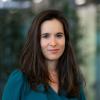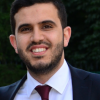Project Description
“A child of its time” was a five-year project (2020-2024) funded by the Swiss National Science Foundation (SNSF) PRIMA Grant. The project analyses how the emerging multipolar world order influences UN peace missions. In a first phase (2020), the team established a dataset on UN peace missions (UNPMM) to analyse how their mandates have changed. In a second phase (2021), the project analysed how conceptualisations of security, sovereignty, and peacebuilding have changed, arguing that this constitutes the intervening mechanism between world politics and UN peace missions. In a third phase (2022-2023), in-depth studies of six cases were produced, namely on the UN peacekeeping missions in the Democratic Republic of Congo, Mali, and South Sudan, and the UN political missions in Libya, Syria, and Yemen. In the last phase of the project (2024), the findings were consolidated through a cross-case comparison in view of establishing a theory on how shifts in world politics influence UN peace missions.
Insights from the research project were shared in publications in several journals, including in the Journal of Conflict Resolution, Contemporary Security Policy, Global Governance, the International Journal of Conflict Management, International Peacekeeping, International Studies Quarterly (forthcoming), and Insight Turkey. An article presenting the overall findings as well as a special issue on the topic of the project are forthcoming too.
In 2024, the team organized a two-day conference that brought together a unique combination of IR and peace scholars as well as UN officials and policy-makers. The topic of the conference was UN peace and security engagements in a changing world. Discussions were highly engaged and resulted in a policy paper.
The project developed a mid-level theory on how world politics influence peacebuilding and thereby contributes to International Relations theories and peace research. By providing a macro-perspective on peacebuilding, it ultimately helps to render it more effective in addressing contemporary conflicts.
UN peacebuilding is at a watershed, sadly illustrated by its failure to adequately address contemporary conflicts, such as in Libya, Syria, and Yemen. In the years immediately following the end of the Cold War, there was a consensus within the international community that peace operations needed to address root causes of conflicts and thus have extensive mandates, including the rebuilding of a liberal state. In recent years, this consensus has waned and different approaches to peacebuilding compete.
This turning point in UN peacebuilding can be understood as part of broader changes in world politics. The increasing influence of Russia and China, as well as regional rising powers, such as Brazil, India, and Turkey, challenge US domination in world politics. The proposed project inquires into how this shift from a unipolar to a multipolar world order influences UN peacebuilding. It establishes a dataset on UN peace missions since the end of the Cold War to analyze how they have changed. It then conducts an in-depth study of the link between world politics and UN peace missions. It does so through a content analysis of UN policy documents regarding peacebuilding and an in-depth study of six cases, namely the UN peacekeeping missions in the Democratic Republic of Congo, Mali, and South Sudan and the UN political missions in Libya, Syria, and Yemen.
Background
This project is funded through a PRIMA grant from the Swiss National Science Foundation (SNSF). This prestigious grant is aimed at excellent women researchers who show a high potential for obtaining a professorship.





